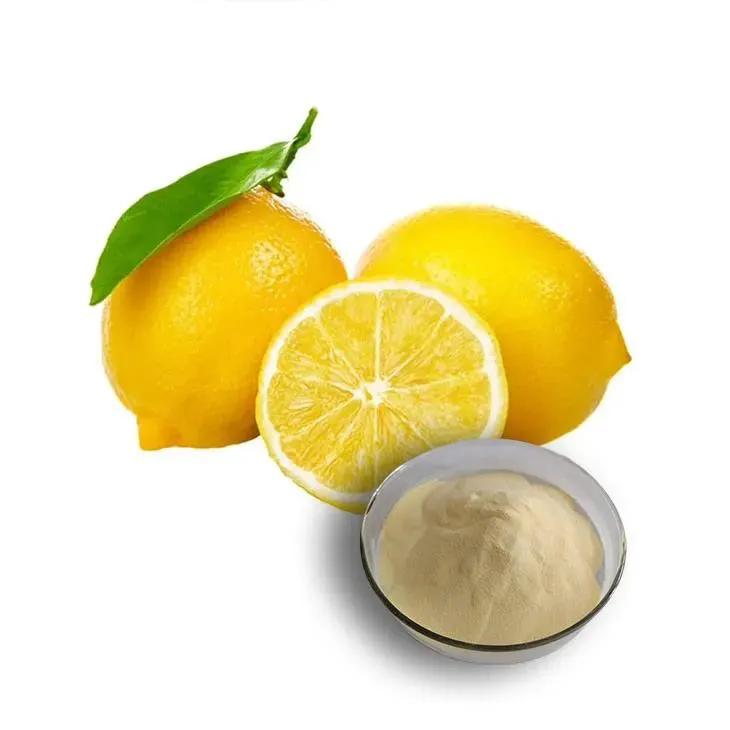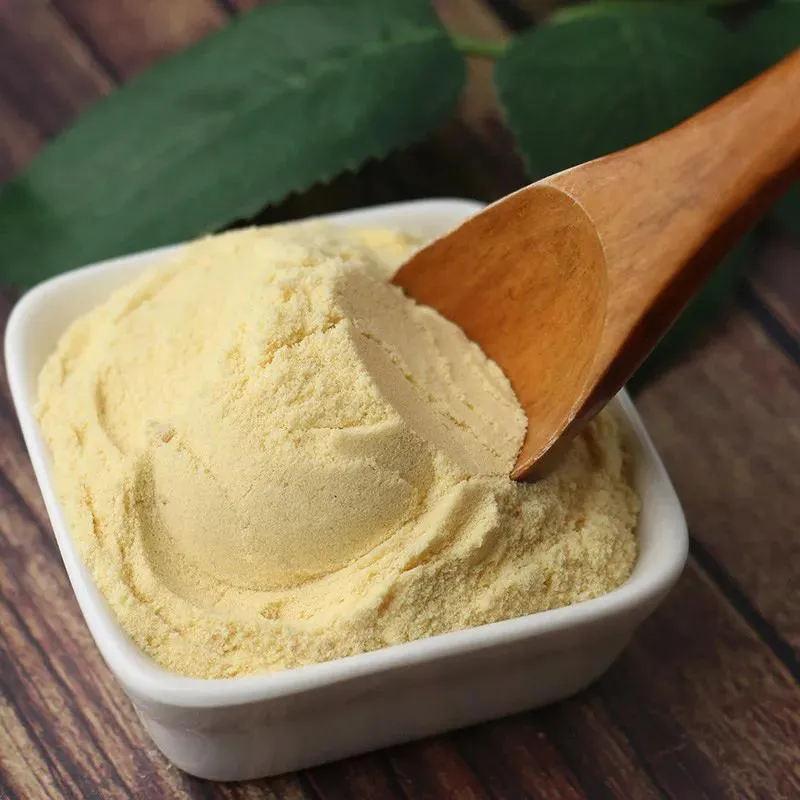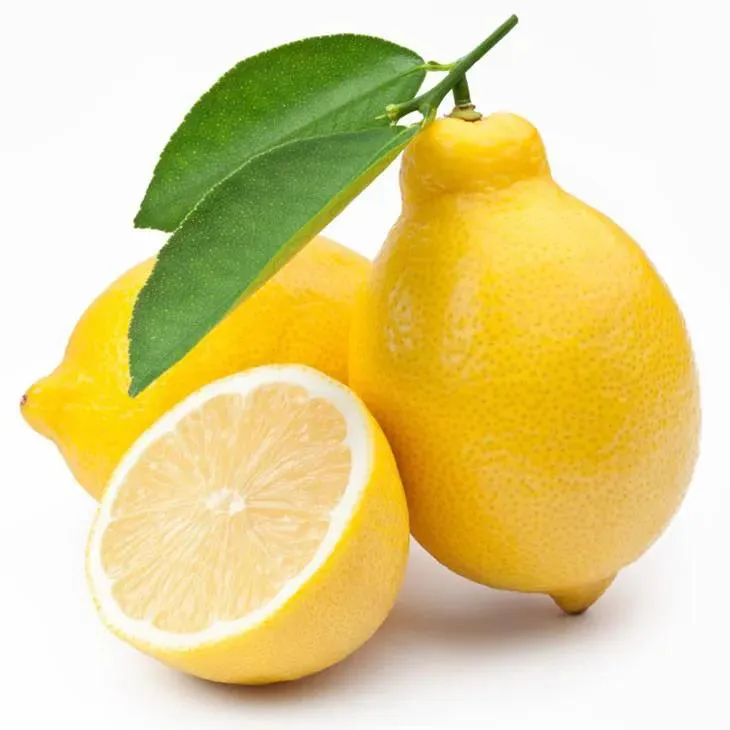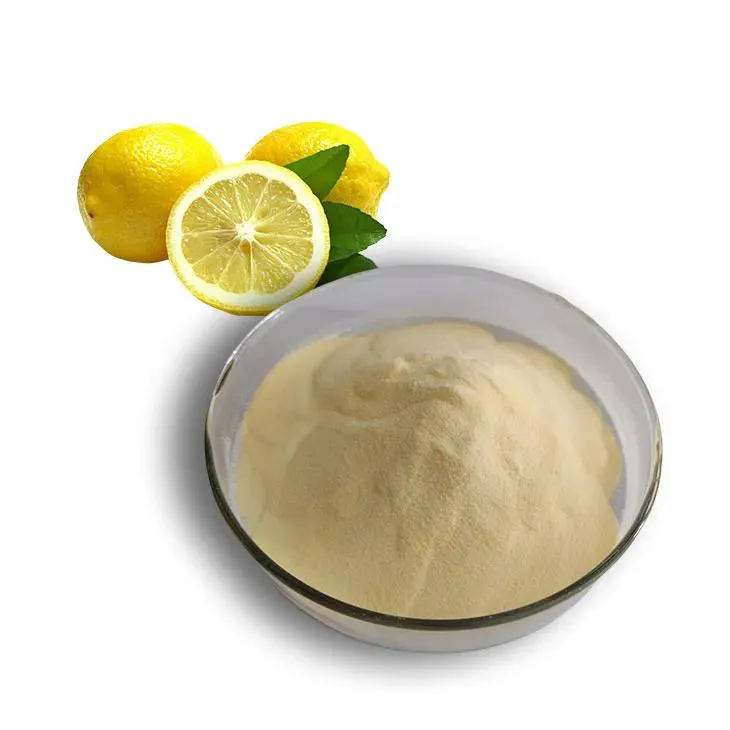- 0086-571-85302990
- sales@greenskybio.com
The benefits of lemon juice powder in cattle feed.
2024-11-12

1. Introduction
In modern cattle farming, the search for effective and natural additives to improve various aspects of cattle rearing has been ongoing. Lemon Juice Powder has emerged as a potentially valuable addition to cattle feed. This article will explore in detail the multiple benefits that Lemon Juice Powder can bring to cattle feed, including its nutritional, functional, and environmental advantages.

2. Nutritional Benefits
2.1 Vitamin Provision
Lemon Juice Powder is rich in vitamins, which are crucial for the health and growth of cattle. For instance, it contains vitamin C. Although cattle can synthesize vitamin C in their bodies to a certain extent, additional vitamin C from lemon juice powder can still play a beneficial role. It can help strengthen the immune system of cattle, enabling them to better resist diseases. A strong immune system is essential for cattle in a farming environment where they may be exposed to various pathogens. Moreover, other vitamins present in lemon juice powder, such as some B - vitamins, contribute to the proper functioning of the cattle's metabolism. These vitamins are involved in processes like energy production from feed and the synthesis of important biological molecules within the cattle's body.
2.2 Mineral Supply
Alongside vitamins, lemon juice powder also provides important minerals. Citrus fruits, from which lemon juice powder is derived, are known to contain minerals such as potassium. Potassium is vital for maintaining proper muscle function in cattle. This includes the muscles involved in locomotion, such as the legs, which are crucial for the normal movement of cattle. Adequate potassium levels also play a role in the regulation of the cattle's heart function. In addition, lemon juice powder may contain trace amounts of other minerals like calcium and magnesium, which are necessary for bone development and maintenance in cattle. Strong bones are essential for supporting the body weight of cattle and for their overall structural integrity.

3. Functional Benefits
3.1 Natural Preservative
One of the significant functional benefits of lemon juice powder in cattle feed is its role as a natural preservative. Cattle feed is prone to spoilage due to various factors such as microbial growth. The acidic nature of lemon juice powder helps in inhibiting the growth of spoilage - causing microorganisms. Microbes typically thrive in a neutral to slightly alkaline environment. The low pH provided by lemon juice powder creates an unfavorable environment for these organisms, thus reducing the rate of feed spoilage. This not only helps in maintaining the quality of the feed but also reduces the economic losses associated with feed spoilage. Farmers can store the feed for a longer period without the need for excessive use of synthetic preservatives, which may have potential negative impacts on cattle health in the long run.
3.2 Palatability Improvement
Lemon juice powder can potentially enhance the palatability of cattle feed. Cattle, like other animals, have a sense of taste, and the addition of lemon juice powder can add a unique flavor to the feed. This can be particularly useful in cases where the cattle are reluctant to consume certain types of feed. By making the feed more appealing, it can ensure that the cattle consume an adequate amount of feed, which is essential for their growth and productivity. A well - balanced diet with sufficient intake is necessary for cattle to reach their optimal weight gain, milk production (in dairy cattle), or other production goals. Moreover, improved palatability can also reduce feed wastage as cattle are more likely to consume the entire feed ration when it tastes better.

4. Environmental Benefits
4.1 Odor Reduction of Cattle Waste
The use of lemon juice powder in cattle feed has positive environmental implications, especially in terms of reducing the odor of cattle waste. Cattle waste emits strong odors due to the presence of various compounds such as ammonia and sulfides. These odors can be a nuisance to nearby communities and can also have an impact on the overall air quality in the area around the cattle farm. When lemon juice powder is included in the cattle feed, it can potentially alter the composition of the waste produced by cattle. Some components in lemon juice powder may interact with the compounds in the waste, reducing the production or release of malodorous substances. This odor reduction can lead to better relationships between cattle farms and their neighboring communities, reducing complaints related to unpleasant smells.
4.2 Nutrient Cycling and Soil Health
Another environmental aspect related to the use of lemon juice powder in cattle feed is its potential impact on nutrient cycling and soil health. As mentioned earlier, lemon juice powder contains various nutrients. When these nutrients are consumed by cattle and then excreted in the waste, they can contribute to the nutrient content of the soil. In addition, the altered waste composition due to lemon juice powder may have different decomposition properties. It may decompose more efficiently, releasing nutrients in a more accessible form for plants. This can enhance the fertility of the soil in areas where the cattle waste is used as fertilizer, such as in pastures or agricultural fields. Improved soil fertility can lead to better plant growth, which in turn can provide better forage for cattle, creating a positive cycle of sustainable farming.

5. Considerations for Use
5.1 Dosage Determination
When using lemon juice powder in cattle feed, determining the appropriate dosage is crucial. The dosage should be carefully calculated based on factors such as the age, weight, and type of cattle. For young calves, a lower dosage may be sufficient as their digestive systems are more sensitive. On the other hand, adult cattle may be able to tolerate a relatively higher dosage. Over - dosing with lemon juice powder can potentially lead to negative effects on cattle health, such as digestive disturbances. It is important to conduct proper research and, if possible, consult with veterinarians or animal nutritionists to establish the optimal dosage for different categories of cattle.
5.2 Compatibility with Other Feed Components
Lemon juice powder should also be considered in terms of its compatibility with other feed components. Cattle feed typically consists of a variety of ingredients such as grains, forages, and protein sources. It is necessary to ensure that the addition of lemon juice powder does not interfere with the nutritional balance or the chemical interactions between these other components. For example, some substances in lemon juice powder may react with certain minerals in other feed ingredients, reducing their bioavailability. Therefore, it is essential to study the potential interactions and make appropriate adjustments to the feed formulation to ensure that all the necessary nutrients are available to the cattle in an accessible form.
6. Conclusion
In conclusion, lemon juice powder offers a range of benefits when used in cattle feed. Nutritionally, it enriches the feed with vitamins and minerals, contributing to the health and well - being of cattle. Functionally, it acts as a natural preservative and can improve palatability. Environmentally, it can reduce the odor of cattle waste and have positive impacts on nutrient cycling and soil health. However, proper consideration should be given to dosage determination and compatibility with other feed components. With careful management, lemon juice powder can be a valuable addition to modern cattle feeding practices, promoting more sustainable and efficient cattle farming.
FAQ:
Question 1: What vitamins and minerals does lemon juice powder in cattle feed provide?
Lemon juice powder is rich in vitamins such as vitamin C. It also contains minerals like potassium. These nutrients are essential for the overall health and growth of cattle.
Question 2: How does lemon juice powder act as a natural preservative in cattle feed?
The acidic nature of lemon juice powder helps in creating an environment in the feed that is unfavorable for the growth of spoilage - causing microorganisms. This inhibits the growth of bacteria, fungi, etc., and thus acts as a preservative.
Question 3: Can lemon juice powder completely eliminate the odor of cattle waste?
No, it cannot completely eliminate the odor. However, it has the potential to reduce the intensity of the odor. The compounds in lemon juice powder interact with the substances in cattle waste to modify the smell to some extent.
Question 4: Are there any negative effects of adding lemon juice powder to cattle feed?
When added in appropriate amounts, there are usually no negative effects. But if over - added, it may cause an imbalance in the acidity of the cattle's digestive system. Also, some cattle may initially be averse to the new taste in their feed, but they can usually adapt over time.
Question 5: How much lemon juice powder should be added to cattle feed?
The amount of lemon juice powder to be added depends on various factors such as the type and age of the cattle, and the composition of the existing feed. Generally, it is recommended to start with a small amount, such as 1 - 2% of the total feed weight, and then adjust according to the observed effects on the cattle's health and feed quality.
Related literature
- The Role of Natural Additives in Cattle Nutrition"
- "Beneficial Additives for Livestock Feed: A Comprehensive Review"
- "Lemon - Based Products in Animal Husbandry: Potential and Applications"
- ▶ Hesperidin
- ▶ Citrus Bioflavonoids
- ▶ Plant Extract
- ▶ lycopene
- ▶ Diosmin
- ▶ Grape seed extract
- ▶ Sea buckthorn Juice Powder
- ▶ Fruit Juice Powder
- ▶ Hops Extract
- ▶ Artichoke Extract
- ▶ Mushroom extract
- ▶ Astaxanthin
- ▶ Green Tea Extract
- ▶ Curcumin
- ▶ Horse Chestnut Extract
- ▶ Other Product
- ▶ Boswellia Serrata Extract
- ▶ Resveratrol
- ▶ Marigold Extract
- ▶ Grape Leaf Extract
- ▶ New Product
- ▶ Aminolevulinic acid
- ▶ Cranberry Extract
- ▶ Red Yeast Rice
- ▶ Red Wine Extract
-
Acerola Extract
2024-11-12
-
Purple Sweet Potato Extract
2024-11-12
-
White mustard seed extract
2024-11-12
-
Ginseng Root Extract
2024-11-12
-
Thunder God Vine Extract
2024-11-12
-
Ginger Extract
2024-11-12
-
Grape Seed Extract
2024-11-12
-
Stevia Extract
2024-11-12
-
Selenium yeast
2024-11-12
-
Kidney Bean Extract
2024-11-12





















